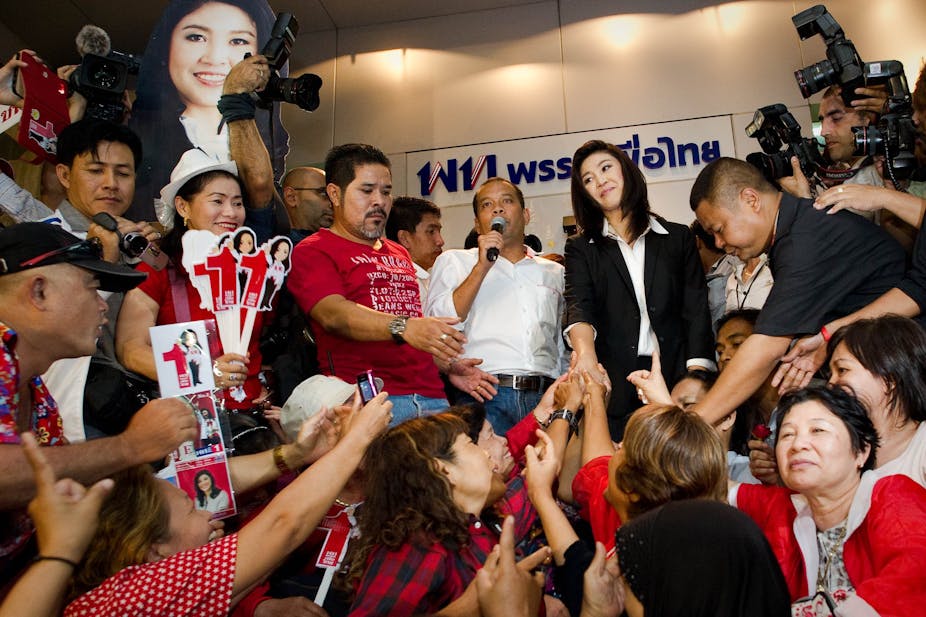Public commentary that deals with the messiness of Thailand’s recent political history is risky. Anything that touches on the personalities, activities or priorities of the royal family is especially dangerous.
On royal topics, the sensitivities of the Thai authorities know few bounds; clamping down on subversive strains of analysis has become core bureaucratic business.
Transgressions can lead to tough consequences. Thais and foreigners alike have gone to gaol for stepping out of line.
Andrew MacGregor Marshall, a former Reuters man, is under no illusions about these realities. With little thought for his immediate prospects he ditched a 17-year career with the global wire service to publish a mega-essay about Thai royal political intrigue.
The first two installments of his long-awaited, four-part contribution, known as #thaistory or more formally as Thailand’s moment of truth: A secret history of 21st century Siam, have quickly become online sensations.
An active blogger and Twitter commentator, Marshall made good on his promise to publish the Wikileaks cables from United States officials based in Thailand and to offer a lengthy interpretative treatment of their value.
Due to the nature of the analysis he wanted to publish, and its consistent references to the Thai royal family, he opted to leave behind a stable career and strike out on his own. And while it is a more modest sacrifice, he will not be returning to Thailand any time soon.
We all benefit from Marshall’s brazen moves. Since the initial tranches of Wikileaks cable material were published in 2010 one of the obvious limitations has been interpretative capacity.
Unless an individual journalist or academic spends months devoted to the cables for a particular country or issue it is impossible to fully grasp the context and details.
For Thailand, Marshall has provided a thorough treatment of thousands of leaked diplomatic communications, and is following the hundreds of pages in the mega-essay with a set of shorter articles.
His insights will reverberate in Thai analytical circles for many years to come.
Diligent caution meant he redacted sensitive personal details from the cables. Marshall has done his best to ensure that anybody who is “not a player in the game” avoids undue implication in the blow-back that may follow.
His revelations could generate blow-back because he examines a long list of topics where winks-and-nods have tended to compensate for insufficient substantiation.
There are many parts of his story that help fill in the blanks around previously unconfirmed speculation. Marshall’s account will now serve as a further source book to be read alongside journalist Paul Handley’s The King Never Smiles: A Biography of Thailand’s Bhumibol Adulyadej.
Taken together these will be fundamental starting points for anyone who wants to understand royal involvement in Thai political affairs.
Of course, not everyone will agree that Marshall’s work is worthwhile.
There are some, particularly in Thailand, who have queried the timing so close to last weekend’s national election. The election set the sister of deposed former Prime Minister Thaksin Shinawatra against the Democrat Party leader, Abhsisit Vejjajiva. With Yingluck Shinawatra storming to power this is a tense and uncertain time; royal matters are particularly sensitive right now.
Others will challenge the value of publishing leaked materials that were never meant for a public audience. There are good reasons for supporting the need for governments to keep some matters, and their internal deliberation, secret. United States officials will probably be embarrassed at the range of colourful topics canvassed in their cables.
They should also be proud that the work now showcased to the world does them much credit. It is generally well-informed, deeply enmeshed in substantial issues, and clearly the product of much hard graft and strategic interrogation.
This means that a new and freely available set of materials, as consolidated by Marshall, will over time get chins wagging the length and breadth of the kingdom. A translation of the mega-essay into Thai will lead to even greater influence.
With its critical interpretations of the role of the royal family, Marshall’s contribution is part of a brewing perfect storm for those who hope to defend royal prerogatives at the end of King Bhumibol’s 65-year reign.
That almost all of the country’s political actors come out of Marshall’s expose somewhat diminished is not a surprise.
With further dissemination, this feat of journalism will also help to generate vibrant debate in the country, and may lead towards the democratic liberties that so many Thais crave.

